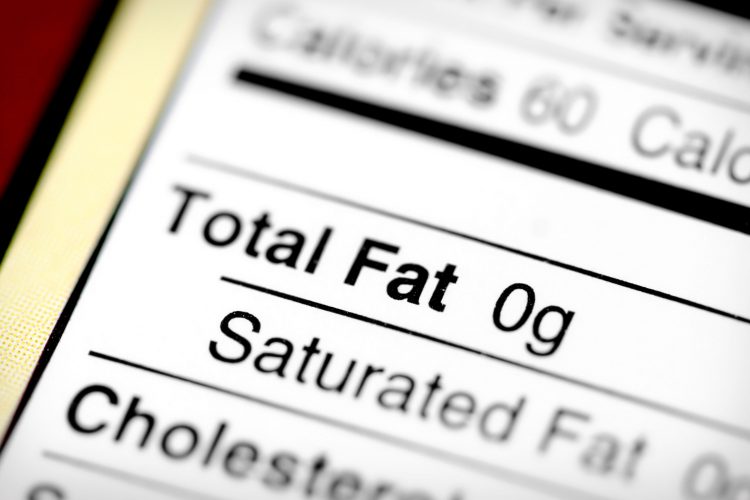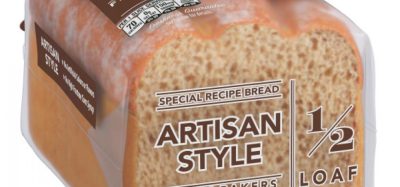Holding true: food product claims and regulations
- Like
- Digg
- Del
- Tumblr
- VKontakte
- Buffer
- Love This
- Odnoklassniki
- Meneame
- Blogger
- Amazon
- Yahoo Mail
- Gmail
- AOL
- Newsvine
- HackerNews
- Evernote
- MySpace
- Mail.ru
- Viadeo
- Line
- Comments
- Yummly
- SMS
- Viber
- Telegram
- Subscribe
- Skype
- Facebook Messenger
- Kakao
- LiveJournal
- Yammer
- Edgar
- Fintel
- Mix
- Instapaper
- Copy Link
Posted: 18 December 2020 | Arundhati Kasbekar | No comments yet
Arundhati Kasbekar discusses the importance of food product claims and examines some of the regulations industry must adhere to across the globe.


How do consumers make an informed decision before buying a food product or a food supplement? They simply usually look for the claims mentioned on the label to confirm the nature and purpose of the product. Consequently, claims have become an important part of any food product packaging.
This article explores the definition of claims and its importance in the labelling of food products. The article also sheds light on the regulatory scenario of claims and the requirements of some of the major food product markets across the globe.
What is a claim?
Claims can be simply defined statements, symbols or wording made on a product label; they can be advertising or any promotional material that gives detail about the product performance/its usage/indication/application/composition.
The claims on product labels, promotional material and advertising are a representation of the connection between consumption of a food/food supplement and its supporting health benefits in the most effective manner.
By ‘claims consulting and substantiation,’ we mean defining new claims, devising or recommending new claims, promotional claims, or advertising claims on new product developments (NPD) or existing products in new markets with complete guidance of the required supporting scientific data to validate the claims.
Food and food supplement claims
In most countries, there are specific regulations and scientific standards available to make food labelling claims. These should be expressed accurately and are required to be substantiated scientifically according to the claim’s supporting data. The scientific requirements and substantiation can differ based on various factors, such as the type of claim (eg, health claims, nutrient content claims, functional claims, non-additional claims or declarations, including sugar-free, gluten-free, etc) for the product of interest and country-specific requirements.
In some regions, in order to get a health or any other claim approved, you must apply to the respective health authority (HA). The HA then verifies the application and supporting documents in order to authorise the claim on the product label.
In a process known as claims substantiation – mentioned above – new claims/health claims must be identified, suggested or defined based on the formulation, type/list of ingredients, product classification, regulations and the number of studies/papers available in scientific literature to justify the claims. Health claim experts have in-depth knowledge of the possible market hurdles and can assist you with the preparation of the necessary scientific evidence and claim substantiation applications to Government agencies/HA.
Providing comprehensive data that supports your product’s claims is vital and can prevent loss of consumer confidence, legal fees and tarnished brand reputation.


Consumers use product claims to make informed decisions about their purchases
Claim examples
The following are some examples of claims that can be made around nutrition and health.
Nutrition
- Low fat: the food has reduced levels of fat content
- Low sugars: the food is low in sugars. A product may read ‘NMT’ (no more than), specifying certain threshold levels.
- Sugar-free: the product is sugarless
- With no added sugars: a claim stating that sugars have not been added to a food, where it may not contain any added mono- or disaccharides, or any other food used for its sweetening properties. If sugars are naturally present in the food, the following indication should also appear on the label: ‘contains naturally occurring sugars’.
- High fibre: indicates that the food has high levels of fibre.
Health
- Boosts the immune system
- Anti-ageing
- Powerful antioxidants
- Supports skin texture
- Fibre helps reduce cholesterol
- Helps reduce weight
- Helps reduce body fat.
Food and food supplement claims and regulations in major markets
USA
The Dietary Supplement Health and Education Act (DSHEA) 1994 defines and regulates dietary supplements in the US. Under the Act, supplements are effectively regulated by the Food and Drug Administration (FDA) for Good Manufacturing Practices (GMP) under 21 CFR Part 111.
The DSHEA requires that all claims related to dietary supplement labelling (including labels, website and other marketing or promotional materials at the point of sale) have scientific substantiation, and that the claims are truthful and not misleading. This means that a dietary supplement distributor or manufacturer must have, at the time the claim is made, competent and reliable scientific evidence to substantiate all claims in its possession.
As per the USFDA regulations, the food labelling and nutrition regulations among the claims that can be used on food and dietary supplement labels fall under three categories of claims that are defined by statute and/or the FDA regulations. These are: health claims, nutrient content claims and structure/function claims.
India
The Food Safety and Standards Authority of India (FSSAI) has laid down criteria for claims that food companies can make in their advertising and promotions, such as nutrition claims, non-addition claims (including non-addition of sugars and sodium salts), health claims, claims related to dietary guidelines or healthy diets, and conditional claims. In case an advertiser wants to make claims for which regulations have not been specified, they must seek approval from the authority with trusted scientific literature to substantiate the claims.
South Korea
Health Functional Food (HFF) is a food (product) manufactured (including processing) using functional ingredients that are nutritious and helpful for our body.
To enable distribution of HFF products in the market, each product is strictly controlled by the Government with preliminary reviews of its advertising and health claims on the labels. They are managed through a record tracking system, which demonstrates the product’s quality and provides consumers with accurate information. Therefore, all the HFF products approved by the Government’s system are required to have proper health claims in order to receive the official ‘Health Functional Food’ mark.
Japan
Dietary supplements are regulated as ‘Food with Health Claims’, under two categories: 1) Food with nutrient function claims (FNFC) for vitamins and minerals, 2) Food for specified health uses (FOSHU) for other functions.
Qualified dietary supplements approved by the Consumer Affairs Agency are allowed to be marketed as FOSHU, with a formal logo and claims on the product label indicating the product’s dietary uses for promoting health. In addition, other forms of health food or functional food that meet FOSHU requirements can also be marketed as ‘FOSHU’, provided adequate evidence on products’ effects and safety (clinical trials are usually required) is given. However, the amount of newly approved FOSHU has seen a sharp decline in recent years.
Indonesia
Health supplement claims are categorised as nutrition claims, health claims and glycaemic index claims. Claims without prior approval will be subjected to scientific evaluation.
Malaysia
Health supplement claims are classified as general, nutritional, functional and/or disease risk-reduction claims. To make a general or functional claim on vitamins and/or minerals for a health supplement product, the product must contain a minimum of 15 percent of the Codex Nutrient Reference Value (NRV) per daily dose of the vitamins and/or minerals, and other ingredients must be substantiated by supporting evidence. Disease risk-reduction claims must be substantiated with supporting evidence.
Conclusion
So, how does your company leverage regulatory requirements for claims? Follow the process of claims consulting, substantiation and assessment meticulously to devise the best route to your product’s success. Bear in mind the following when doing so:
- Strategy to assess the regulations of claims (basis country-specific claims standards/ regulations)
- Identification of new/allowable or promotional claims that can be used on the label, advertising and promotional material, as per the regulatory requirement based on ingredient list/nutrients
- Identification of claims based on the product classification, ingredient type/levels, health function support it is intended for, and availability of supporting claims data/studies
- Protocol of clinical studies to substantiate claims made on supplement/nutrition labels and conducting scientific literature reviews and data searches in the preparation of petitions for Health Authority approvals is necessary
- General principles for claims and advertisement (market specific) with applicable regulations
- Product formulations to be evaluated to determine qualification of the proposed claims with the market/country-specific regulations on claims
- Review of these claims to ensure compliance with existing applicable regulations, including reviewing claims on advertising and promotional material
- Classification of claims; guidelines on use of certain words or phrases in claims, synonyms that can be used to define a claim in the specified regulations and number of claims or objectionable/prohibited claims, if any
- Understanding the process of claim applications of various health authorities.
About the author
Arundhati Kasbekar is a Regulatory and Quality Assurance professional with 18 years of experience in the food nutraceuticals, pharmaceuticals, cosmetics and personal care industry. Her core set of competencies include regulatory strategy and solutions, regulatory support for global projects, quality assurance and compliance, new product development, and compliance audits for the food and pharmaceutical industry. A pharmacist by profession, Arundhati is a Certified Food Safety Supervisor under the FSSAI FoSTaC certification programme for Basic and Advanced Manufacturing and a Lead Auditor for ISO QMS. She currently works as Head, Global Regulatory Services, Food Products at Freyr Solutions.









